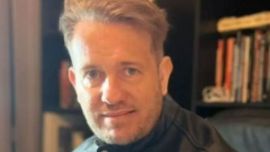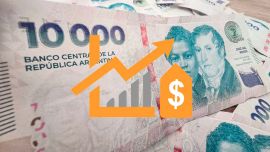Starting in the early morning, demonstrators draped in Bolivia's red, yellow and green flag blocked roads in La Paz with barricades of tires, rope and trash cans. They demanded their "vote be respected." Following allegations of fraud, protestors clashed as incumbent Evo Morales was declared winner of Sunday's presidential election.
With 99.99 percent of the ballots counted, the country's Supreme Electoral Tribunal (TSE) declared Morales had secured 47.1 percent, against 36.5 percent for his closest rival Carlos Mesa –- just scraping past the 10 point margin of victory required for an outright win.
It means Morales, who turns 60 on Saturday, has won a fourth successive term despite the constitution he promulgated in 2009 limiting presidents to two mandates. Morales is currently the longest-serving president in the region.
But the vote count, which first showed Morales and Mesa heading for a runoff, shifted dramatically on Monday to give the president a wider lead.
Morales's Movement for Socialism (MAS) party "just committed fraud" Mesa, who was previously president from 2003 to 2005, said on Thursday.
Backed by a collective of centrist and right-wing parties, he called on his supporters to maintain street protests.
On Thursday the European Union, United States, Brazil, Argentina and Colombia called for a second round run-off to restore trust and confidence in the electoral process. The Organisation of American States (OAS) had already expressed "surprise" and "concern" over Monday's sudden shift in official tallies, and has agreed to scrutinise the results.
"These results should not be considered legitimate until the end of the requested scrutiny process," said OAS Secretary General Luis Almagro, based in Washington.
No date nor conditions for such a mission have yet been publicised.
Protests around the country
In the southern neighborhood of Achumani, protestors yelled "Evo again, huevo carajo (egg shit)!" In different neighbourhoods, police were heavily present. They were especially seen in plazas and roundabouts, to prevent any road closures on the part of residents.
The few buses that circulated the city took alternate routes from the outskirts to the centre of La Paz, which was calm. Banks were open with regular schedules alongside public offices and businesses.
While shops in the city centre were open, many in the suburbs were closed, mostly due to the road blocks. In the cities of Santa Cruz (east), Sucre (southeast), Cochabamba (centre), and Potosí (southwest), protests led by the opposition continued. They continue to advocate for a run-off vote.
In Santa Cruz, headquarters for the opposition, supermarkets opened their doors only for a few hours, which allowed hundreds of people to stock up on foods.
"The strike is now indefinite. What we want is a second-round vote, because this election has shown to be a fraud," Professor Rubén López, aged 62, told the AFP.
In Cochabamba there were clashes between pro-administration and opposition groups. There were no injured, according to local media.
Back to work
Morales returned to work Friday, making public appearances and inaugurating public works. By midday he had already made two appearances in rural areas, thanking his supporters.
"We respect and salute the urban vote, from outside, but the rural vote guaranteed the process of change and, therefore, the development of the Bolivian people," said Morales.
Already president since 2006, Morales will now remain in the post until 2025.
Left-wing allies Cuba, Venezuela and Mexico sent their congratulations. Venezuela President Nicolas Maduro, on a trip to Azerbaijan, accused Mesa of attempting a "coup d'etat."
Violent protests raged all week, and fresh clashes broke out on Thursday between supporters of both sides in Santa Cruz, the economic capital and opposition stronghold. Offices in the city housing Bolivia's electoral authority were set on fire, as security forces clashed with demonstrators in La Paz and elsewhere.
Scandal
The TSE has been heavily criticised for its conduct of the count process, including by its own vice-president, who resigned. On Monday, after the release of partial election results showed Morales just ahead of Mesa, mobs torched electoral offices in Sucre and Potosi, while rival supporters clashed in La Paz.
A general strike went into force on Wednesday.
Morales's very appearance on the ballot was itself a scandal. In 2016 he tried to overturn the term limits but lost a referendum. Yet a year later, the Constitutional Court authorised him to stand.
Both the TSE and Constitutional Court are made up of members appointed by Congress, where MAS has a majority.
One-time union leader Morales, his country's first ever indigenous president, was hugely popular until his referendum defeat.
He won the 2009 and 2014 elections with more than 60 percent of the vote.
But his popularity has waned amid allegations of corruption and authoritarianism.
Morales points to a decade of economic stability and considerable industrialisation as his achievements, while insisting he has brought "dignity" to Bolivia's indigenous population, the largest in Latin America.
–AFP
by AFP/José Arturo Cárdenas


























Comments